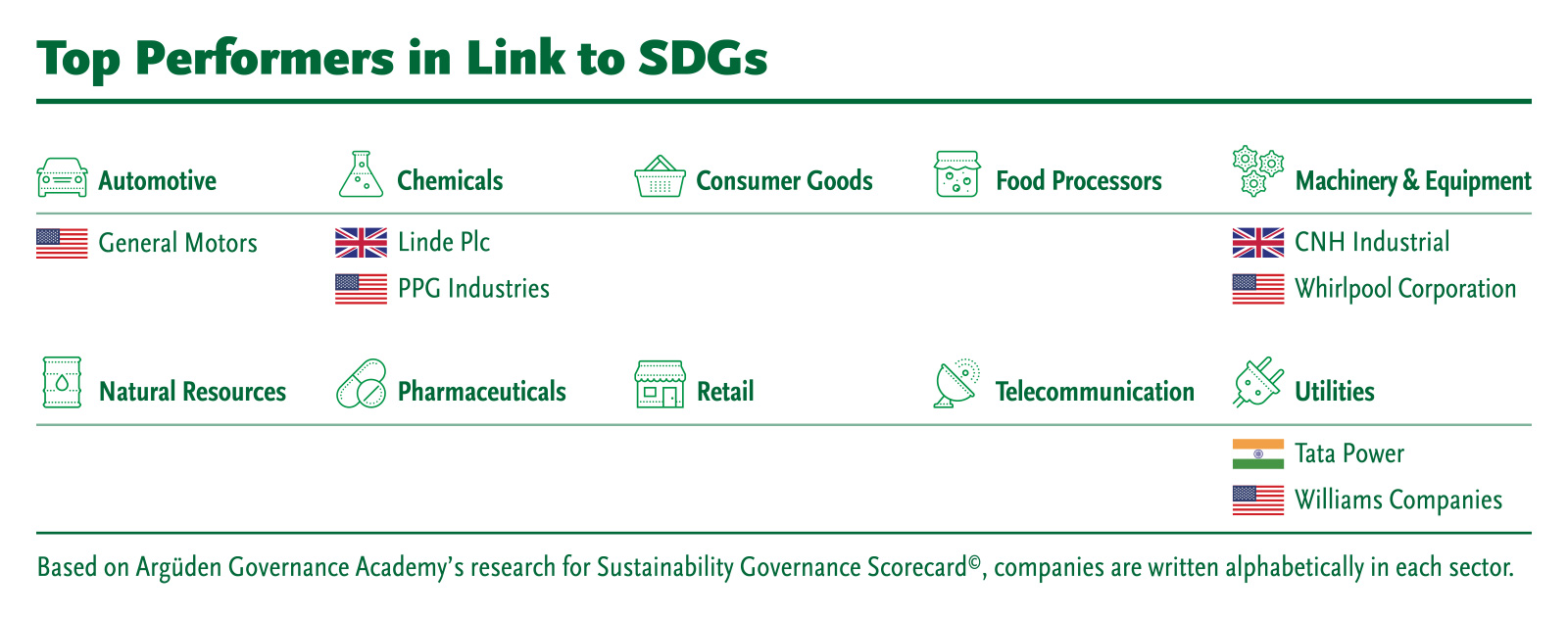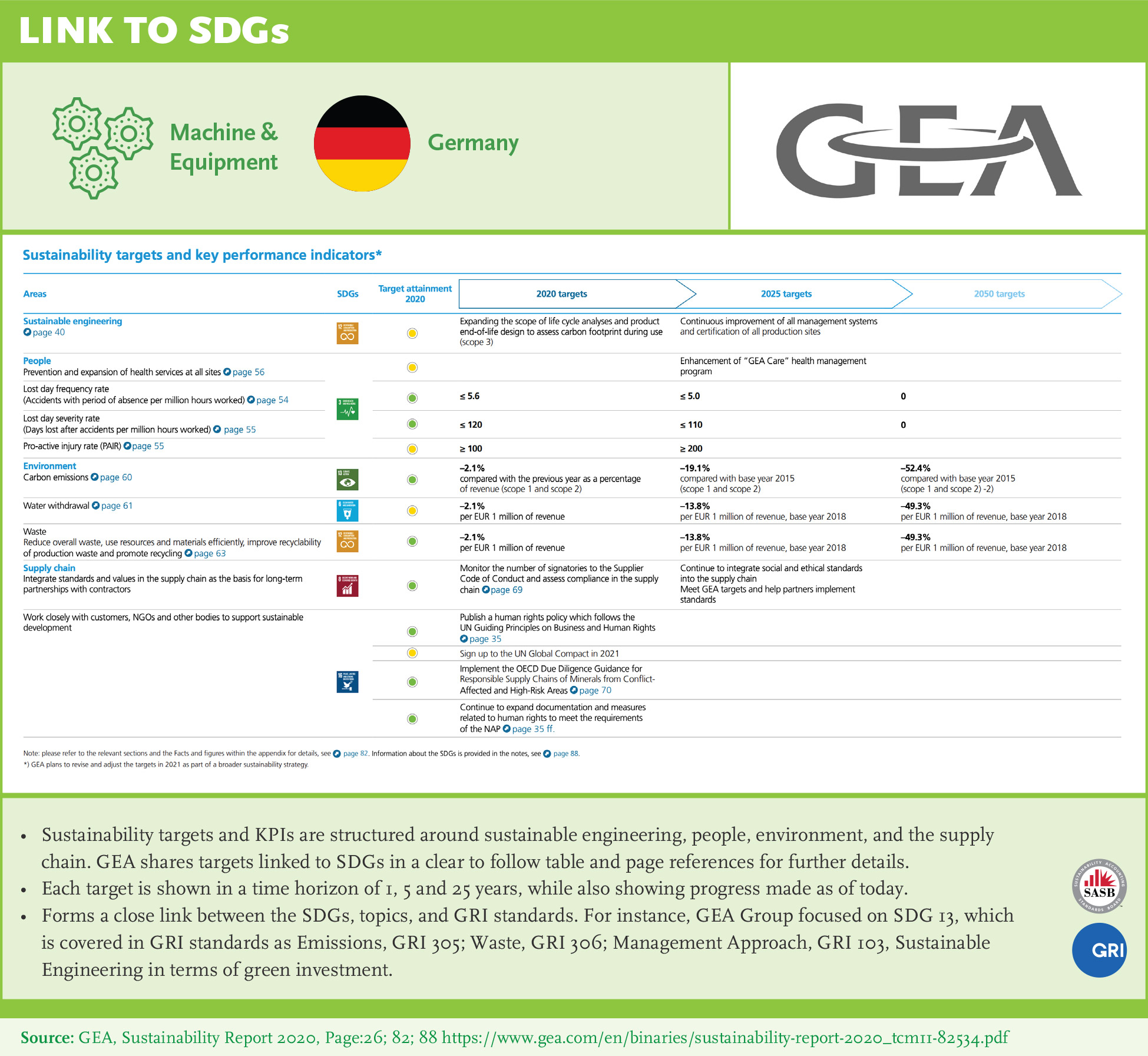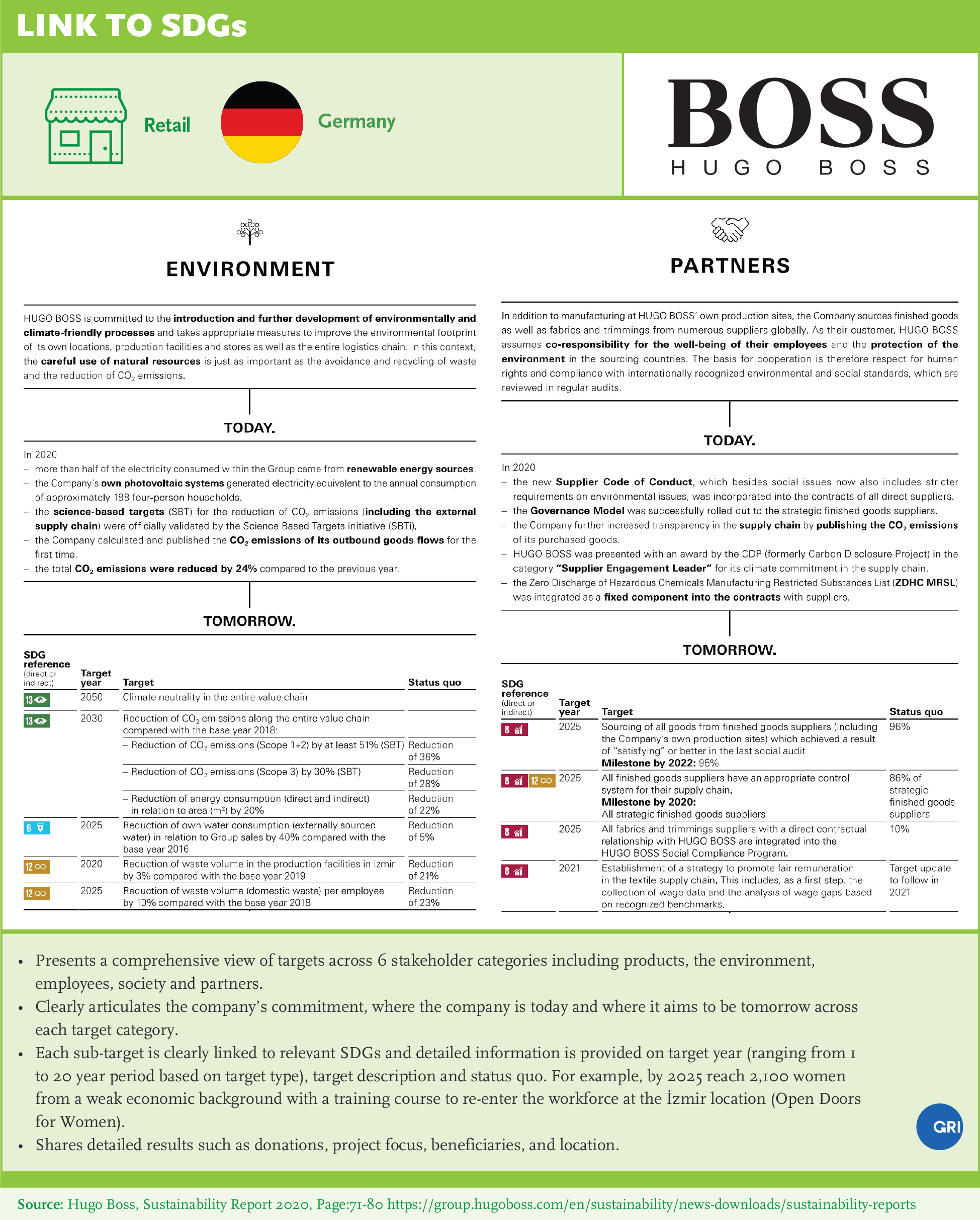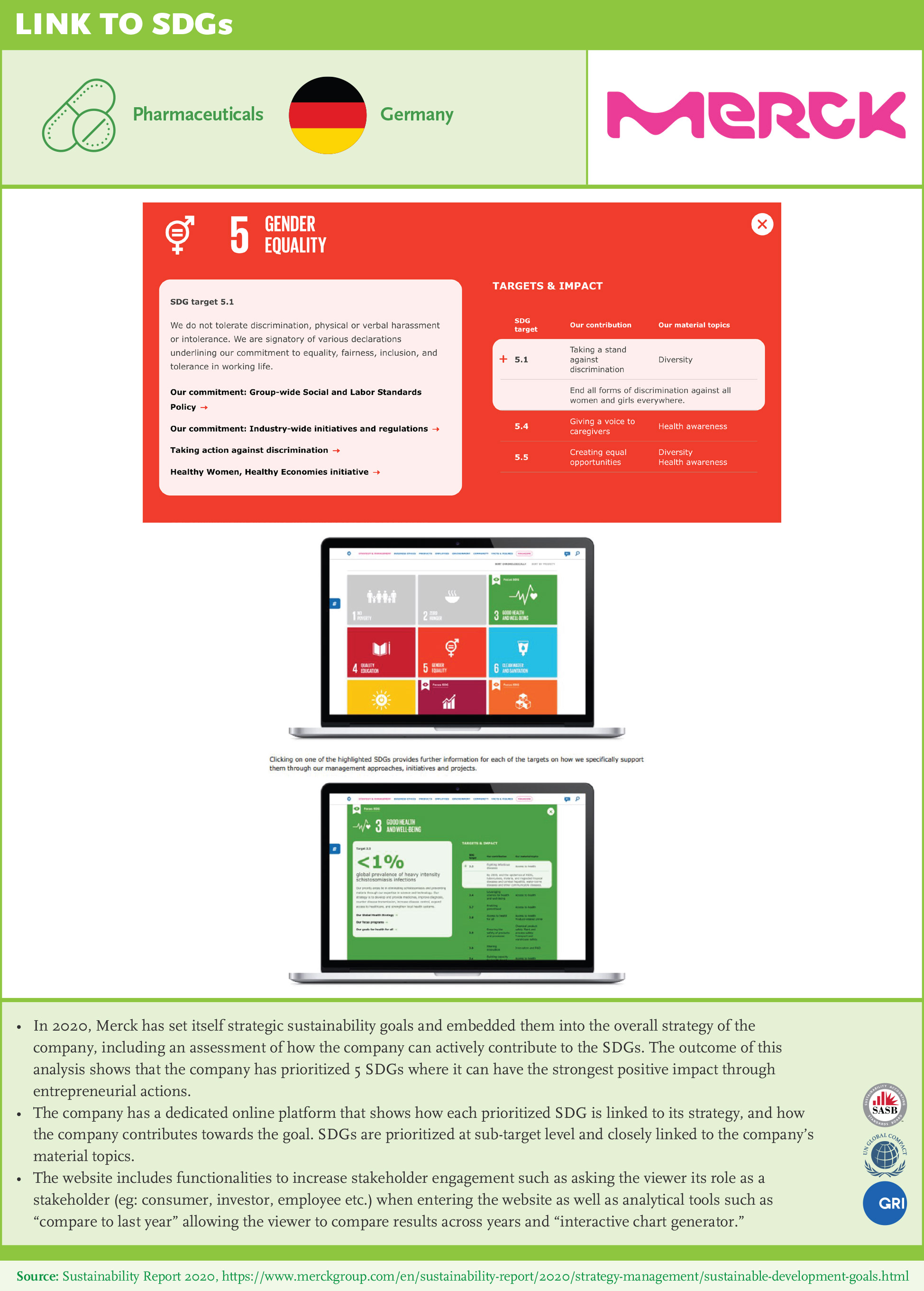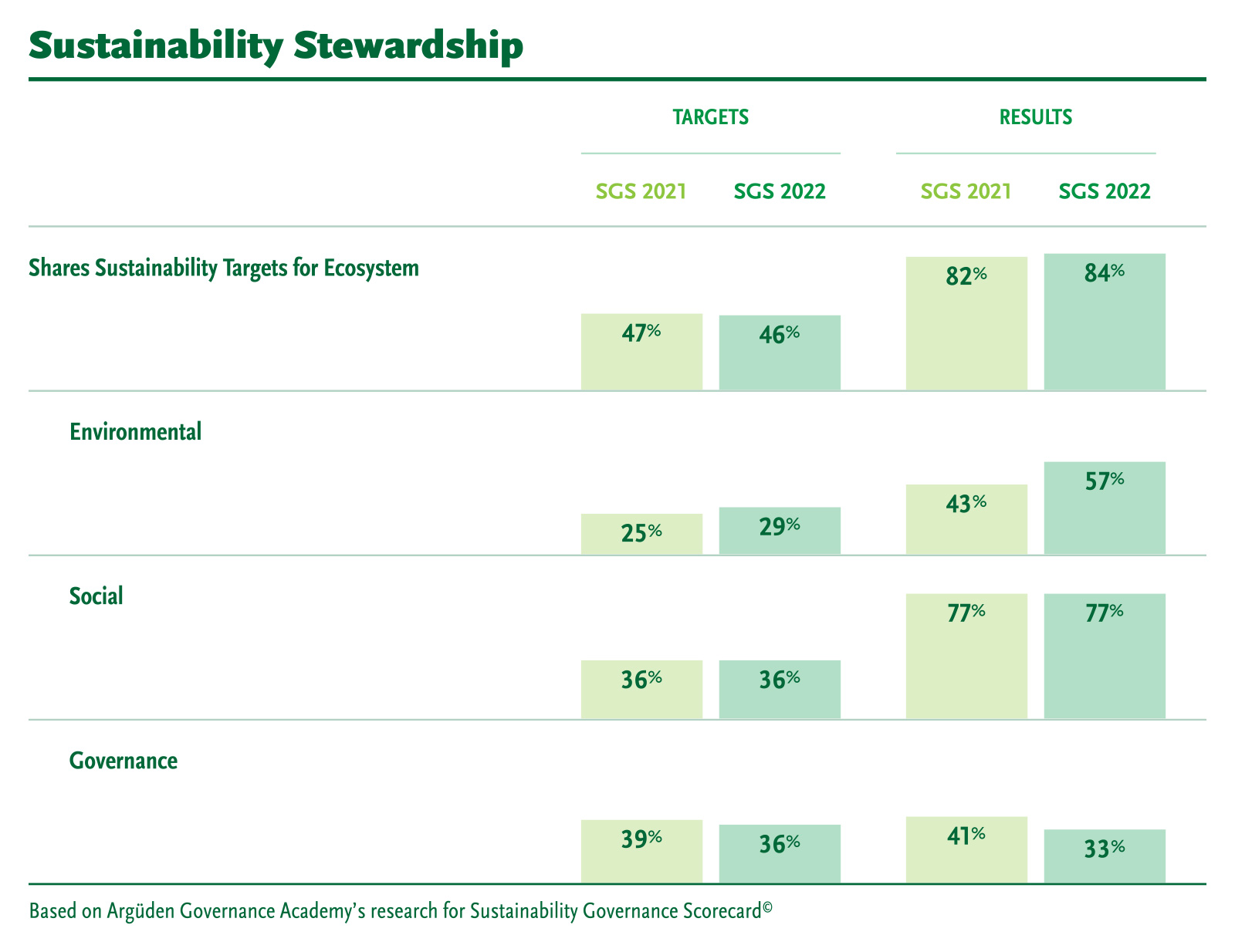
Recommendations
Manage your company as well as your ecosystem (environment, community, and partnerships): Take responsibility for the environment and the communities in which the company operates. Sustainability can only be achieved through collective action.
Link SDGs with strategy and prioritize for impact: Companies must shift to a proactive, forward- looking approach to encompass the SDGs.
Quantify your contribution for stakeholders: Link their priority SDGs with relevant stakeholder groups and quantify their impact.
Focus on a few that matters to drive impact: Link strategy and targets to relevant SDGs – based on your organization’s potential in maximizing positive impact and mitigating negative impact – this requires leadership to drive the SDG agenda – link to materiality.
Make it specific: Show link to sub-targets (preferably at target level).
Set targets and measure progress: Quantify your direct contribution – Set KPIs and SMART targets. Adopting a learning mindset, takes a mindset and systems change to shift – demonstrate evidence of impact through activities and collaboration.
Develop and share an action plan to address gaps: SDGs are long-term targets for 2030 and addressing them successfully requires long-term thinking and a learning mindset. Companies that identify gaps to reach their targets and share action plans on how they will address them will be better positioned for continuous improvement in this journey. This would also signal to investors that the company is taking ownership of the issue.
Think of your ecosystem: Impact is significantly higher if you think of your value chain and have the power (Align with value chain impacts).
Partner for impact both at the sector level and systemic level: Topics require partnerships for real impact and acceleration of progress, innovation and scale-up.
